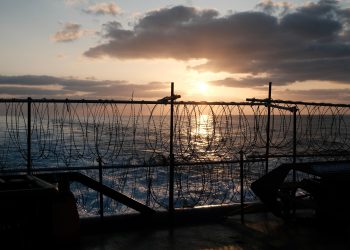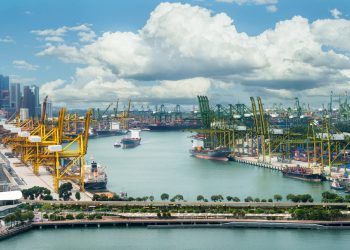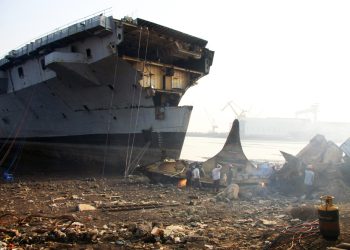The path to lower CO2 emissions from ships will be better achieved through a fleet-based approach to efficiency requirements, according to a new analysis prepared for Danish Shipping by Dutch consultants CE Delft.
If new low- and zero-emission ships are to enter into operation and more expensive climate-neutral fuels are to gain acceptance by the end of this decade, CO2 regulation should be possible on the basis of a shipping company’s fleet and not of an individual ship, the report concludes.
[smlsubform prepend=”GET THE SAFETY4SEA IN YOUR INBOX!” showname=false emailtxt=”” emailholder=”Enter your email address” showsubmit=true submittxt=”Submit” jsthanks=false thankyou=”Thank you for subscribing to our mailing list”]
The analysis ‘Fleet-level compliance with the CII Regulation’ shows that, if the oldest ships are allowed to continue unaltered rather than be retrofitted, that would release funds to build completely new ships with very low or no CO2 emissions. At the same time, the approach will ensure that total CO2 emissions would not be greater than if the older ships are also required to be retrofitted.
We are clearly proponents of looking at a fleet in its totality when measuring the CO2 emissions of a shipping company. Instead of spreading efforts too thinly on all ships, you should instead focus on the newest and greenest ships, and this has been confirmed with the new study,
…explained Maria Skipper Schwenn, Executive Director for Security, Environment and Maritime Research at Danish Shipping.
Currently, there are very few ways to cover the additional costs of low- and zero-carbon fuels and consequently, the projections of the use of these fuels are low, the report finds.
Meanwhile, the case-study analysis finds that fleet-level compliance can contribute to the business case for investing in low- and zero-carbon fuelled ships. In the best cases, over 70% of the additional costs of using low- and zero-carbon fuels can be covered by not investing in the improvements of other ships in the fleet (in the worst case, it is about 5%).
The total emissions of the fleet will then be the same as when all ships would have had a C label. This would be an improvement over the current situation, in which it is hard to make a case for using low- and zero-carbon fuels.
The analysis states that green fuels will not be in use in this decade unless an incentive is created. That incentive can be created by the IMO adopting a fleet-wide approach – without compromising the level of ambition,
…adds Maria Skipper Schwenn.
Fleets of 2 to 3 ships or more can help the business case for ships sailing exclusively on low and zero-carbon fuels. Taking into account that, in some cases, fuels can be blended with conventional fuels, fleet-level compliance could be an option for many shipping companies, CE Delft concludes.
Fleet-level compliance does not have an impact on the total emissions of the fleet and does not jeopardize meeting the levels of ambition of the initial strategy, because it can be designed in a way that requires the total CO2 emissions of the fleet to be equal to or less than when all ships would comply individually.
The analysis is part of influencing the IMO member states and making them see that a fleet-based approach is the most logical, sensible, and ambitious way of pushing for the green transition for ships. The fleet-based approach can be organized in such a way that you are at least as likely to achieve the set reduction targets. We, therefore, believe that CO2 regulation should be possible at fleet level if the shipping company or ship operator so wishes,
…concluded Maria Skipper Schwenn.
As industry negotiations are currently underway into how ships can meet efficiency requirements, the Danish Maritime Authority has submitted the analysis to the IMO – not as an actual proposal but as a set of ideas that can be included in the discussions as background information.
This follows similar proposals submitted to IMO by the World Shipping Council and the Cruise Lines International Association (CLIA).































































